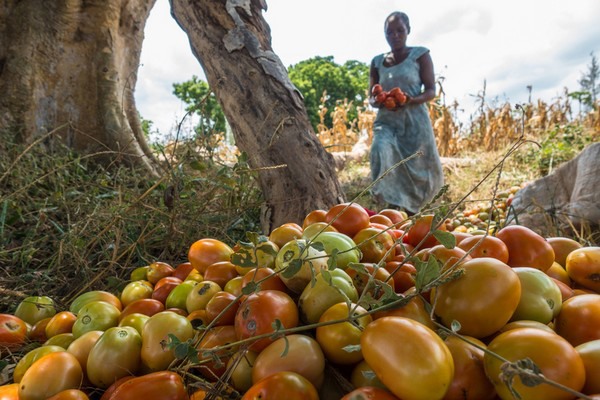Nigerian tomato growers are currently navigating quite troubled waters as the tomato crops across the country are getting ravaged by a Tuta absoluta infestation. National tomato production is indeed suffering a 90% loss, with prices skyrocketing in every state. "Prices for a basket of fresh tomatoes used to be for around 10-20 cents, now it's for 3-5 dollars," says Mr. Abiola Oladigbolu, Head of the Biopesticide Center at the National Horticultural Research Institute. But how did it get to this point?
The first infestation
According to the Biopesticide Center Head, the first big infestation of Tuta absoluta happened in 2015. The majority of tomato growers got affected, and many switched to the cultivation of different crops, given the severity of the outbreak. Aided by the fact that Tuta thrives in warm environments, growers really had no solution to control that than to wait for the colder season to start. That is when NIHORT, the Food and Agricultural Organization of the United Nations, together with the Ministry of Agriculture and Rural Development (FMARD), started working on possible solutions and spreading awareness about the insect. "We did radio interviews, we promoted everything that was going on as much as we could, considering how serious the situation was."
The awareness campaign was also aimed at showing the solutions that the partnered institutions worked on. Namely, two biopesticides and a trap tray. "Dr. Abiola Oke and her team came up with the idea," Mr. Oladigbolu explains. "Thanks to the support from institutions and associations, we as NIHORT have developed these two biopesticides – the NIHORT- Lyptol and the NIHORT-Raktin – whose purpose was indeed to give a first weapon to growers to control the infestation in their crops." Adding to that, the tuta trap tray (TTT) was meant to mass trap and kill adult Tuta absoluta so that no more eggs would be laid.
 © Joan Egert | Dreamstime.com
© Joan Egert | Dreamstime.com
A devastating second wave
Thanks to that and the big promotion NIHORT did, the Tuta absoluta in 2015 was controlled, and the situation went back to normal. Growers kept using those three solutions to prevent Tuta from coming back as strong. Yet, something went wrong in the run-up to 2023. "Not having issues with Tuta for a while, growers thought that the problem was solved for good, and thus they neglected the IPM program. Additionally, we came into the warm season with exceptionally high temperatures. In other words, Tuta absoluta found the perfect breeding ground to thrive."
The situation then snowballed, with growers throwing entire crops away, prices going up by 400%, and an overall lack of supply throughout Nigeria. So, when will this stop? "The rain season is approaching fast, and with that, temperature drops will occur," continues Mr. Oladigbolu. "However, as it starts getting warm again, we'll be back to square one and most certainly deal with another Tuta absoluta infestation." That's where the collaboration between the federal government and different institutions comes into play.
"We need more resources to scale up the production of our biopesticides and trap trays and to better distribute that to growers." NIHORT Executive Director/ CEO Dr. Lawal Attanda emphasized the need for Federal Government to incorporate NIHORT Tuta Integrated Pest Management packages into the National Tomato Policy programme to prevent yearly occurrences, he further stressed that research is still in progress to discover newer biopesticides and traps; and get these in the hands of growers if not for free, at least super cheap."
NIHORT is also working on different, more preventative solutions for the long term. "We have bred three varieties of tomato that can be grown in different parts of the country and tolerance to wilt," says the Biopesticide Head. "We are now multiplying them, and it's going to take a little bit before we can give those seeds to growers. At the same time, the point of all of this is to have more growers growing tomatoes all across Nigeria. So far, Tuta infestations started and particularly affected the North of the country because of the high temperature experienced in the North of the country. However, there's still a way to go for that. Until then, every Nigerian grower needs to implement the IPM program developed by NIHORT."
For more information:
National Horticultural Research Institute (NIHORT)
P.M.B. 5432, Jericho Reservation Area, Idi-Ishin, Ibadan, Nigeria
Tel.; +234 (0) 802 225 5504
info@nihort.gov.ng
nihortinfo@yahoo.com
nihort.gov.ng
